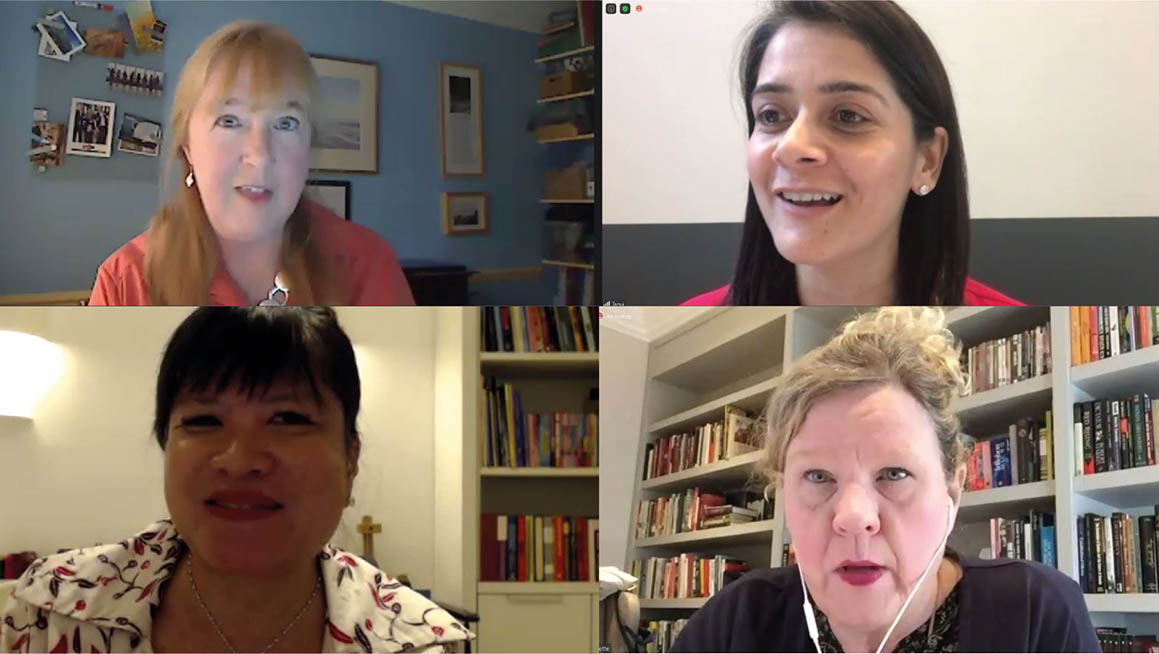Driving commercial and political engagement between Asia, the Middle East and Europe
Driving commercial and political engagement between Asia, the Middle East and Europe
Driving commercial and political engagement between Asia, the Middle East and Europe

With women disproportionately affected by the adverse impacts of COVID-19, and fears that the crisis may blunt the progress made so far on gender equality in business and leadership, Asia House convened leading industry figures to discuss this crucial issue.
The roundtable discussion, hosted in partnership with Standard Chartered, whose CEO Bill Winters co-chairs the B20 Women in Business Action Council, focused on solutions for fostering an inclusive environment, the role of government action, and the need for cultural transformation when it comes to addressing the global gender pay gap.
“This is not just about empowering women, it is about ensuring women are in power,” Tanuj Kapilashrami, Group Head of HR at Standard Chartered Bank, said, noting that inclusion is a big strategic priority for Standard Chartered, where they have done a lot of work on how inclusion leads to innovation. Kapilashrami emphasised that while numbers and quotas “invite people to the party,” it was important to go a step further.
Inclusive culture was also an important aspect for Shinta Widjaja Kamdani, Chief Executive Officer of the Sintesa Group and Co-Chair of the B20 Action Council on Women in Business. Inclusion is a key condition for a successful organisation, she said.
“Companies must encourage both men and women to participate in this effort of gender equality. We’re not just educating the women, we’re also educating the men.”
However, Kamdani also expressed concern that the COVID-19 pandemic would present a setback for gender equality and all the progress that has been achieved so far. This has already been seen in Indonesia, where the pandemic has affected 60 per cent of female workers in the agriculture and traditional services sectors, Kamdani said.
Concerns about the impact of COVID-19 on gender equality were echoed by other panelists, but Barbara Harvey, Managing Director of Accenture Research, stressed the need to embrace the opportunity that comes with the current crisis.
“I truly believe that we stand at the crest of the most unparalleled opportunity to reset economies, to reinvent workplaces, to build back better for women,” Harvey said.
Meanwhile, Her Excellency Janice Charette, High Commissioner for Canada in the United Kingdom, outlined some of the ways Canada was leading by example in terms of how governments can contribute to closing the gender gap; such as by putting more women in public sector leadership roles and making the selection process more merit-based, open and transparent.
However, Charette noted that there was still work to be done when translating Canada’s progress into the private sector – work that would be made more difficult by the current global health pandemic. Acknowledging that it was already a challenge to get companies to focus on culture change during good times, Charette waned that progress will be even harder amid the current crisis, as companies are worried about their survival.
“We’re looking at a long, cold, dark six months ahead of us,” she said. “We need to be attentive and thoughtful about employer issues. How do we support leaders, managers and supervisors who are being tested in ways they have never been tested before?”
Accepting the tough situation that global business is in, Harvey highlighted a need to completely disrupt the way we work. “Things that were completely impossible six months ago are now happening around the world. We need to reflect on what we thought the workplace looked like and what it might look like in the future.”
Kapilashrami expressed a similar sentiment about the opportunities presented by the pandemic, but also highlighted the more “evil side” for women. Expressing caution about the working from home model, she pointed out that some women were experiencing an additional burden of childcare and elderly care, while others were at greater risk of domestic abuse.
“You can’t have a one-size-fits-all approach,” she stressed.
Chaired by Asia House Chief Executive Michael Lawrence, the discussion aimed to keep an important issue on the agenda amid a time of crisis for global business.
